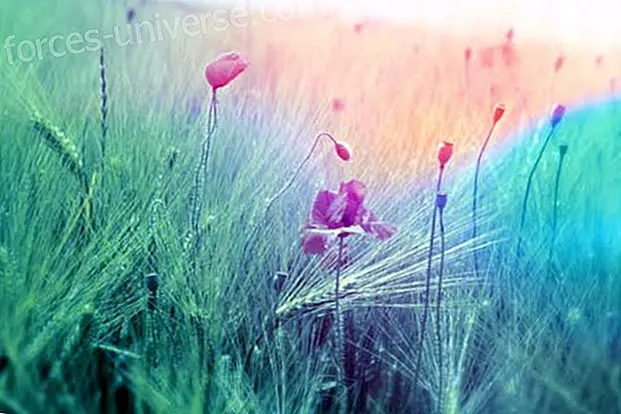Interview with Agustín Pániker, he talks about his vital and professional experience with meditation and mindfulness
- 2014
Augustín Pániker is an enthusiast of everything he undertakes; rigor and passion emerge in his writings, his chalas and especially in the publishing house he has been running for more than 20 years. Editorial Kairós, specialized in oriental culture, philosophy, spirituality and essay, is a reference among Spanish-speaking readers interested in these topics.
In this interview, Agustín Pániker tells us about his vital and professional experience with meditation and mindfulness and about the responsibility of disseminating them in an honest and self-critical way, beyond economic interests.
 "Mindfulness is a spiritual practice normally inseparable from a worldview based on interdependence, nonviolence, cooperation, whose axes are compassion, wisdom, equanimity, serenity."
"Mindfulness is a spiritual practice normally inseparable from a worldview based on interdependence, nonviolence, cooperation, whose axes are compassion, wisdom, equanimity, serenity."
Growing up in such a diverse and advanced cultural environment, open to other ways of understanding the world, must be fascinating for a child ...
I confess that I had a happy childhood. I don't know if I should have been surrounded by trillions of books, but without a doubt the cultural environment encouraged my curiosity and my interest in knowing different ways of understanding the world and reality. As a young man I read philosophers, I traveled many continents, I designed cities, I experimented with altered states of consciousness, I wrote stories ... and a long etcetera. I think the flame of curiosity and imagination never goes out. Or so I hope!
He inherited a business and family passion, how much of that passion is still alive? And how does it transmit it?
Without passion I could hardly live. After more than 30 years as an editor (although I could say the same as a writer, teacher or lecturer), I continue with the same enthusiasm as in the beginning. Probably more; because now I have enough experience and the solidity editorial to find a better balance between the more commercial aspects and the more intellectual aspects. In today's publishing world there is a dreadful divorce between these areas. I believe that if the publishing sector continues to publish anything, with the sole objective of generating short-term benefits, the book then has the days counted. (He will not be able to compete with more dynamic, immediate and addictive leisure products.) I think that an editor should never forget that he is a generator and diffuser of culture, be it a novel, an essay, a children's story or a practical book . Not everything goes. For me, it is essential that I can still publish books that interest me, that stimulate me, that I consider to contribute something really interesting to knowledge. The balance between editorial rigor and commercial amenity is, in my opinion, the key for the edition to continue to fascinate me. And it is the recipe that I would recommend to young publishers. Once that fruit pairing, it is transmitted even through the pores. It is embedded in the stamp of the publisher.
You who have met several international "gurus", have you found any teacher among them?
 I have met many renowned authors and highly regarded spiritual teachers, but none of them seems to captivate me enough to take him as a master. I confess that I have a certain allergy to many of the gurus that circulate around the world. And I believe that this autocratic vein, apart from going with my character, is necessary in the world of spirituality. We must cultivate discernment. And know how to distill the timeless of the passenger, what suits one of what is merely fashionable. That does not mean that some personalities have influenced me a lot. But new confession! generally more by reading his books than by his charisma and personality. I am not a good devotee.
I have met many renowned authors and highly regarded spiritual teachers, but none of them seems to captivate me enough to take him as a master. I confess that I have a certain allergy to many of the gurus that circulate around the world. And I believe that this autocratic vein, apart from going with my character, is necessary in the world of spirituality. We must cultivate discernment. And know how to distill the timeless of the passenger, what suits one of what is merely fashionable. That does not mean that some personalities have influenced me a lot. But new confession! generally more by reading his books than by his charisma and personality. I am not a good devotee.
Kair s is an editorial reference in Eastern religions, Buddhism, meditation and by extension mindfulness, so fashionable in the times that run. Does being a standard bearer bring any advantages in a global and fast society?
Certainly, Kair s is a pioneer in the dissemination of the spiritual traditions of the East and some of its most important spiritual practices (meditation, yoga, mindfulness, qigong, etc.) tera). Next year we will be 50 years old. In all this time we have tried to go beyond passing fashions and seek seriousness and timelessness. And that is something that our readers and the public in general have appreciated. And it gives some prestige. Sometimes, however, we can get ahead of the times and introduce some author, current of thought or practice that will still need some time to crystallize. That happened to me in the late 1970s and early 1980s when I opted to publish texts on ecological thinking. It was a resounding failure. But that is a job.
Books and methods are multiplied to pay attention to different areas of life (food, sport, professional performance ) We run the risk of McMindfulnizaci n ? What does it become a new consumer trend?
A very real risk and that I personally keep in mind. I think it is important that we who dedicate ourselves to disseminate and expand meditation, yoga, mindfulness or full consciousness do so in the most honest way possible and, at the same time, with spirit autocratic. The supermarket of the spiritual (capitalism in the last term) is capable of bashing everything. Spiritual practices easily become mere utilitarian techniques to perform more, be more skilled, more self-centered and competitive. That is why it is necessary to remember where it comes from and where mindfulness is embedded. In what values, practices and worldview sinks its roots. It is not that he wants to return the mindfulness to his Buddhist matrix (and after all, contemplation techniques have existed in many traditions of the world, well that perhaps not with the intensity or centrality that Buddhism grants), but I think it is important to remind those who practice it in hospitals, prisons, therapies, companies, schools ... that mindfulness is a spiritual practice normally inseparable from a world view based on interdependence, in non-violence, in cooperation, whose axes are compassion, wisdom, equanimity, serenity, and so on. Welcome be all good training in focusing, in paying attention to the present moment, in the practice of concentration ... Some societies have cultivated it for many centuries. But let's not fall into the stupidity of learning it, idealizing it, tearing it apart and - logic of consumption demands - throwing it away once we have squeezed it. The stupidity would be double then. But as happened with yoga (whose “boom” has already happened decades ago, but whose popularity continues to increase), people who have practiced it with some seriousness have not only incorporated it into their lives, but inevitably take an interest in the most deep and even the philosophy from which it originates.
What values do you think that meditation and mindfulness can contribute to the society in which we live, and especially to the youngest? Should it be part of the school program as is already the case in some US states?
 Meditation and mindfulness lead to a better awareness of ourselves, both physically, psychically, emotionally and socially (there are many ways to meditate). Do not fall for the naivety of selling it as the remedy of all evils, or as the elixir of happiness (the great trap of consumerism: acquire this or that - material or immaterial - and you will be happy). Let's flee from banal promises of happiness. But meditation can be of incalculable value in a hyperactive, multitasking, competitive, narcissistic society.Not to weather how these inertia can be done, but precisely to calm down, reconnect, generate empathy, altruism ... that is, to counteract in some way the alienating tendencies to which all - and particularly young people - are subject. That these practices are taken to schools seems to me to be excellent news.
Meditation and mindfulness lead to a better awareness of ourselves, both physically, psychically, emotionally and socially (there are many ways to meditate). Do not fall for the naivety of selling it as the remedy of all evils, or as the elixir of happiness (the great trap of consumerism: acquire this or that - material or immaterial - and you will be happy). Let's flee from banal promises of happiness. But meditation can be of incalculable value in a hyperactive, multitasking, competitive, narcissistic society.Not to weather how these inertia can be done, but precisely to calm down, reconnect, generate empathy, altruism ... that is, to counteract in some way the alienating tendencies to which all - and particularly young people - are subject. That these practices are taken to schools seems to me to be excellent news.
What is the best gift that meditation has brought to your life?
Realize, or better, apprehend (underlining that interspersed "h") that what I call "I" is only a knot, a discrete center of inseparable gravity of nature or society of which it is a part (of which it is a part part). It is not an intellectual knowledge. It is the realization that the breath, the heartbeat, the thought that sprouts, the feeling that assails ... all that is not "mine." It's just a movement, the wave in a vast ocean. A paradoxical and unexpected gift. And emancipator.
Agustín Paniker website
Web and online store of Editorial Kairós
Source: http://sloyu.com/blog
Interview with Agustín Pániker, he talks about his vital and professional experience with meditation and mindfulness






